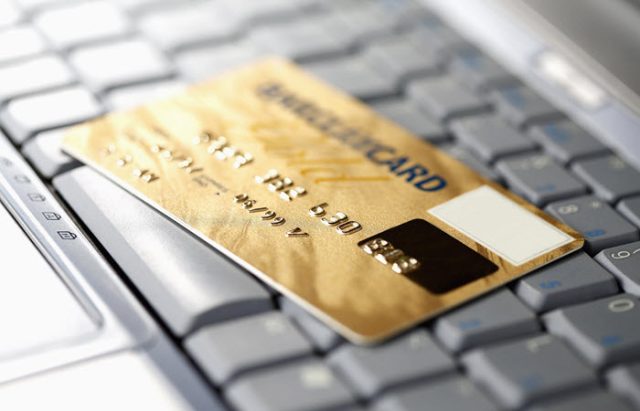The Aussie Guide to Bad Credit & What to Do About It
By Danica Katigbak
February 15, 2017 • Fact checked by Dumb Little Man

The funny thing about credit scores is that hardly anyone ever notices them until you need to buy a big ticket item. Swiping left and right is all fun and games until you need to make an adult purchase — like a house or a car. Chances are, you’ll need to take on a home loan or get car finance. Seems simple, right?
Now, imagine being excited to finally get the car of your dreams and then all of a sudden your application gets rejected because you have bad credit.
What does having bad credit mean?
When you try to borrow money from any institution, the deciding factor on whether or not you’ll be given a loan (or how big the loan will be) is your credit score. In the simplest sense, your credit score is the expression or representation of your trustworthiness with borrowed money from the lender’s point of view.
This score is determined by a form of point system in which the numbers are taken from your credit history. When you pull together the sum total of these points, you get a statistical “proof” of your reliability with debt.
Your score can sit anywhere between 0 and 1200. The higher your score, the higher your chances of being given a loan or finance (GOOD CREDIT). This is because higher scores generally tell financiers that you’re more likely to make repayments on time (or at all). In the same way, the lower your score, the lower your chances of getting a lease or loan, and the more wary institutions would be in lending to you (BAD CREDIT).
How do I get a good credit score?

The process of getting a good credit score is pretty straightforward. All of the basic things that lenders want you to do are already within the realm of your responsibility.
Here are few general rules for keeping a healthy credit score:
- Don’t max out your credit cards
- Make repayments on time
- Don’t skip on payments – make an arrangement
- Pay attention to notices and respond as soon as possible
- Check your credit report regularly to ensure that all information is in order
- If/as soon as you find them, fix any mistakes that have been made on your credit report
Getting a bad credit report, on the other hand, entails doing the exact opposite. If you miss out on payments or forgo them altogether, or if you keep maxing out your credit cards, you will get a bad credit score. The more late payments, maxed out cards,or notices you ignore, the more negatively impacted your credit score will be.
See Also: 4 Ways to Start Building Great Credit
How to find out if I have bad credit

The simplest way to find out is by checking your credit report. Australian credit reporting agencies like Veda should be able to help you with this. It does take a bit of time because of its application process and requirements, but this should definitely be your first step to checking for your credit health.
Even without checking your credit report, there are a few warning signs that you’re going towards the wrong end of the credit spectrum.
Pay attention if or when you start to get multiple call and letters from debt agencies. This is a tell tale sign that your score may be going lower and lower.
The same goes for having a flurry of unpaid bills, credit card defaults, overdue balances, and notices of assessment from debt collectors. You don’t have to experience all of these at the same time. Being in just one of these situations is already a red flag for your credit report.
How does bad credit affect me?
As discussed earlier, your credit score shows lenders how reliable you’ll be with repayments should they lend or loan to you. Bad credit limits your options on who to borrow from, how much will be lent to you, and the interest rates of your loan. While there are financing institutions who will give you second chance car finance or bad credit home loans, they may be a little trickier to find.
While debt and credit relations are a little more common knowledge, there are a few seemingly unrelated effects to having bad credit. Who would have thought that landlords would actually check credit before letting you sign a lease? If you find yourself having difficulties getting approved for an apartment, it may be time to check your credit score.
You’d also be surprised to know that certain jobs especially in upper management, actually require you to have a good credit history. You can be turned down for a job or promotion because of things like bankruptcy, large debts, outstanding bills, and other negative items in your credit report.
They don’t look at your scores per se, rather things that may potentially affect your job performance. The expectation is that the more personal financial problems you have, the more likely and negatively impacted your performance will be.
How do I fix my credit rating?
The whole irony of the situation is that, more often than not, you have to take on another loan to fix a credit rating that may have gone down due to previous loans. The idea is to repair your credit by showing lenders that you can use credit responsibly. The trouble is — having bad credit makes access to new credit or new loans quite difficult. This is much like the whole “Need a job for experience – need experience for a job” kind of scenario.
Before you go around looking for new loans to take out, start first with what you have. Make sure that your existing home and utility bills, phone bills, internet bills, credit card bills and other recurring bills are paid for regularly. This way you get into the habit of paying for things on time and managing your money better.
Once you’re comfortable with this new routine, start small before going big. Take out a small loan or apply for a credit card to prove that you are financially trustworthy. If you can make repayments on time, lenders may just give you the benefit of the doubt with a larger loan.
If there is a larger more immediate need, let’s say for a car for a new job, you can also go with bad credit car loan companies to help you out. Interests might be a little higher, but they do create repayment packages that make it easier for tighter cash flows.
A car lease with rent-to-own option, even from a second chance car finance company, will definitely help you boost your credit rating — if you’re always on time with repayments. It also helps you kill two birds with one stone considering you’ll be rebuilding credit while having the vehicle that you need.
See Also: 6 Step To Improve Your Credit Score Now
Danica Katigbak
Danica Katigbak is a sassy finance, budget, and travel writer for Alpha Finance. This little lady is always on the hunt for places to go, food to eat, and stuff to do on a shoestring budget. When her fingers aren't typing away at a keyboard, you'd often find her around and about looking for the next frugal adventure.







